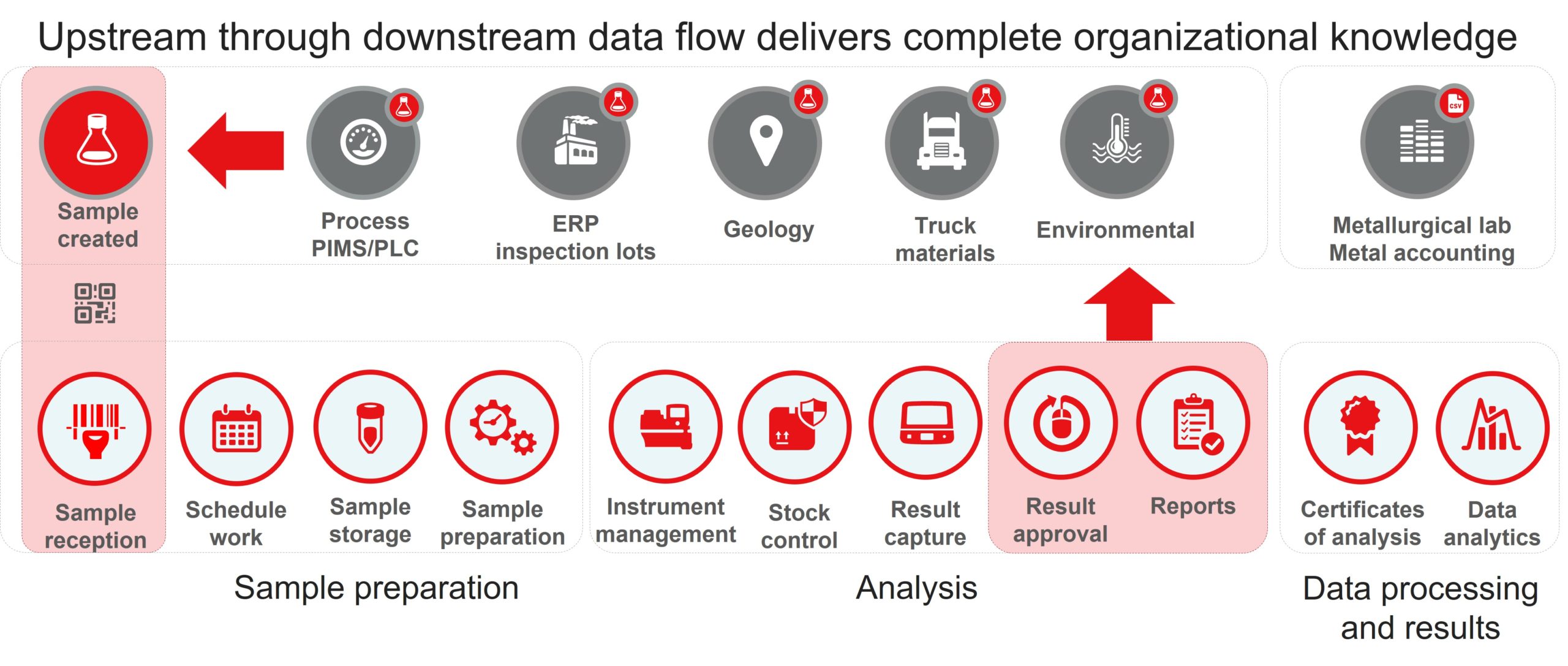The growing demand for electric vehicles is driving the need for affordable, high-performance energy storage solutions. However, with the cost of raw materials rising, ensuring battery production workflows are cost-effective is critical to maintain competitiveness. Seamless sharing of manufacturing and quality control data is essential for making any production line efficient. Here, we look at how modern laboratory information management systems (LIMS) are improving traceability and efficiency in battery cell manufacturing workflows.

Managing complexity in battery manufacturing with LIMS
Battery manufacturing workflows are highly complex, incorporating a broad range of processes such as milling, mixing, brick formation, calcination, washing, drying and surface coating steps. To ensure the performance and safety of end products, pre-production testing of raw materials and in-process monitoring of intermediate components is essential. A comprehensive set of analysis techniques, including inductively coupled plasma-optical emission spectroscopy, X-ray diffraction, scanning electrode microscopy, wet-chemistry approaches, and pH testing, among others, are therefore employed to ensure quality throughout the manufacturing chain.
Manufacturing execution systems (MES) play an important role in facilitating efficient battery cell production, ensuring processing steps happen at the right time. However, while MES provide effective oversight of some aspects of the manufacturing environment, they are often unable to collect all necessary types of sampling data gathered during battery production. Without dedicated solutions for sample scheduling and results management, the value of MES platforms can be limited, particularly when identifying and tracing raw material contamination or out-of-specification results.
Modern LIMS are designed for comprehensive sample management, and can streamline pre-production and in-process sampling to improve the efficiency and traceability of manufacturing workflows. Advanced solutions, such as Thermo Scientific™ SampleManager LIMS™ software, integrate seamlessly with MES platforms, allowing manufacturers to log samples automatically at specific points and assign appropriate tests. As all relevant process information is automatically logged into the system upon collection, each sample can be received from the laboratory once pulled from the production line. With all data stored centrally in the LIMS and assigned to a specific sample and batch, upstream issues can be quickly and easily traced back to the source. So, should a problem subsequently be identified with a particular batch of raw materials, the robust traceability offered by the LIMS allows manufacturers to act quickly to recall products, maintain quality, and protect brand reputation.

Enhanced efficiency through seamless LIMS integration
LIMS effortlessly organize the vast quantities of information collected during battery production, including instrument metadata, calibration data, and test results. By storing this information centrally and making it accessible for trending and visualization, LIMS can help manufacturers achieve comprehensive oversight of their production processes in real time.
As well as allowing battery manufacturers to visualize data live as materials are being processed in the manufacturing workflow, SampleManager LIMS software also enables operators to compare results against historical data. This allows decision-makers to monitor how data is trending over time, ensuring results not only meet minimum specification limits, they also fall within expected operating ranges. With out-of-trend data potentially indicating a reactor performance issue or a decline in the quality of raw materials, identifying these trends early enables manufacturers to take timely corrective action without impacting production lines. Similar efficiencies can also be leveraged in terms of inventory management, with some LIMS capable of alerting decision-makers before stock runs low or even automatically placing new orders.
Modern digital solutions support enhanced integration not only between manufacturers and their instrumentation, but also with third-party applications and services. SampleManager LIMS incorporates a powerful data transformation tool that translates and consolidates data from across the production line, including from LIMS, MES, and other systems such as enterprise resource planning (ERP) platforms. Its highly configurable architecture allows manufacturers to build and streamline integration between systems using an intuitive graphical user interface, making information readily available to decision-makers in real-time.
Improving traceability and efficiency in battery manufacturing
The seamless integration of LIMS and MES systems can improve efficiency and traceability in battery production. With the right tools for managing and visualizing production line data, manufacturers can make effective decisions to improve the quality and cost-effectiveness of battery cell products.
Learn more about how SampleManager LIMS software can help improve efficiency and traceability in your battery manufacturing workflows.
Look out for our next blog on how LIMS can simplify data reporting in battery cell quality management workflows.




Leave a Reply